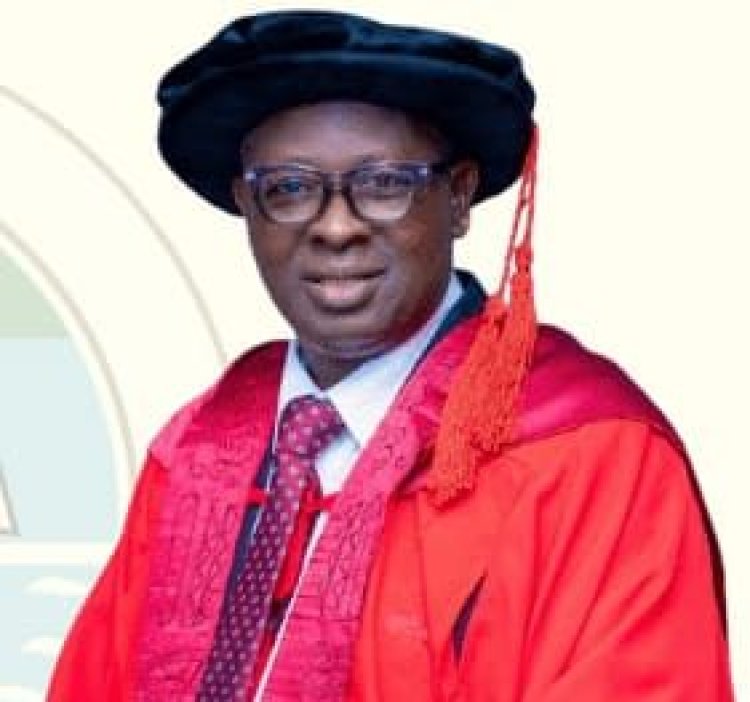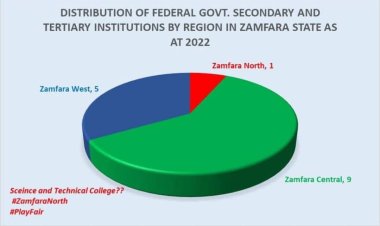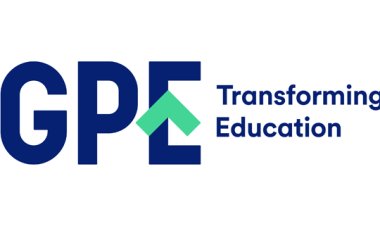UNILAG Professor Urges FG to Adopt Fourth-Generation Screening Kits for HIV Detection
Professor Sulaimon Akanmu, a leading expert in Haematology and Blood Transfusion at the University of Lagos (UNILAG), has advocated for the adoption of fourth-generation screening kits for HIV testing by the Federal Ministry of Health and the National Agency for the Control of AIDS (NACA).

Professor Sulaimon Akanmu, a distinguished scholar of Haematology and Blood Transfusion at the University of Lagos (UNILAG), has called on the Federal Ministry of Health and the National Agency for the Control of AIDS (NACA) to adopt fourth-generation screening kits for testing Human Immunodeficiency Virus (HIV) antibodies. His recommendation comes as a pivotal step towards achieving epidemic control of HIV in Nigeria.
RECOMMENDED: UNIOSUN Lecturer Earns Coveted Nigeria Malaria Modelling Fellowship
Delivering the 14th Inaugural lecture for the 2023/2024 academic session at UNILAG, Professor Akanmu highlighted the critical role of innovative screening methods in combating HIV/AIDS. He emphasized that the adoption of fourth-generation screening kits would significantly enhance the accuracy and efficiency of HIV testing, ultimately aiding in the reduction of disease incidence and prevalence nationwide.
In his lecture titled, “The virus and the malnourished red cells: It is only a matter of time; Humanity is set to have the last laugh over the virus,” Professor Akanmu discussed the evolution of HIV/AIDS, its impact on global health, and the advances in antiretroviral therapy (ART) that have provided hope in the fight against the virus.
SEE MORE: FUOYE's Faculty of Engineering Triumphs at EPIC 2024 Competition Hosted by NUESA, ABUAD
He underscored the importance of achieving epidemic control, stating, “With effective use of ARTs by persons living with HIV, Nigeria and the rest of the world would be able to get to a point where no new infection will occur.” Professor Akanmu further elaborated on the Sustainable Development Goal 3.3, which calls for ending the AIDS epidemic by 2030, emphasizing the need for deliberate efforts to reduce disease incidence and mortality.
Highlighting the significance of early detection and treatment, Professor Akanmu revealed, “Effective ART adds at least 33 years to the life span of persons living with HIV on therapy. Since viral load becomes undetectable, a person living with HIV on effective treatment will be able to infect less than one person in 33 years.” He stressed that the adoption of fourth-generation screening kits would enable accurate determination of new infections, facilitating targeted interventions and monitoring progress towards epidemic control.
With an estimated 1.8 million persons living with HIV in Nigeria, and approximately 1.63 million already on antiretroviral medication, Professor Akanmu’s recommendation for adopting advanced screening methods holds significant promise for enhancing HIV/AIDS management and control in the country.
The Vice-Chancellor of UNILAG, Prof. Folasade Ogunsola, commended Professor Akanmu for his insightful lecture, describing him as an outstanding scholar who has contributed immensely to the field of haematology and blood transfusion.
READ ALSO: UI Professor Otegbayo Champions Healthy Liver and Population Control in Nigeria
As Nigeria continues its efforts to combat HIV/AIDS and achieve epidemic control by 2030, Professor Akanmu’s expertise and recommendations offer valuable insights and guidance for policymakers, healthcare professionals, and stakeholders in the fight against HIV/AIDS.
Share this article to raise awareness about the importance of adopting advanced screening methods for HIV detection and join the conversation on achieving epidemic control in Nigeria!

 Chris Oyeoku Okafor
Chris Oyeoku Okafor 



